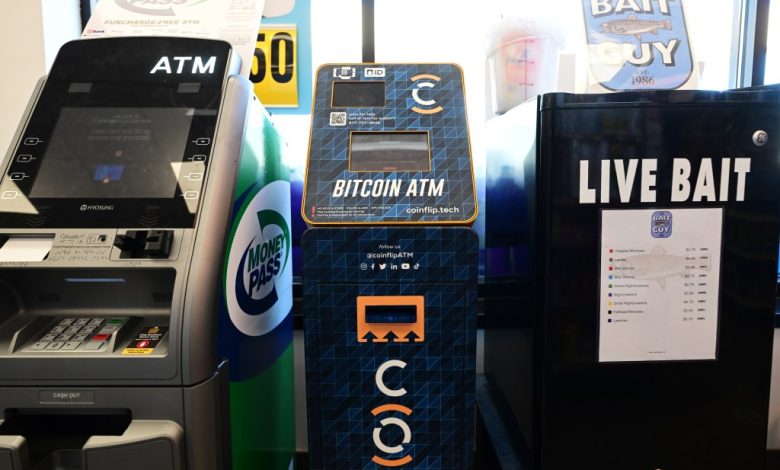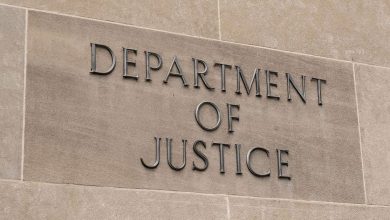Bye Bye Bitcoin? St. Paul City Council discusses banning crypto ATMs – Twin Cities

Goodbye, Bitcoin? There currently are at least 32 crypto kiosks, according to St. Paul police, where users can deposit cash and see it converted into a digital alternative.
Soon, there may be none.
Alarmed by fraud cases that have cost victims millions of dollars nationally, the St. Paul City Council is poised to ban virtual currency kiosks that have proliferated citywide.
The ATM-like kiosks are placed in high-traffic areas such as convenience stores and allow users to make cash deposits, which are then converted into Bitcoin or other digital currencies and transferred into an account or virtual wallet. Digital currency is money that exists only in an electronic form and can be exchanged online. It often operates independently of central banks.
City ordinance
An ordinance before the city council calls for prohibiting any person from operating a virtual currency kiosk within city limits. It would not affect online virtual transactions conducted by businesses and residents.
Michael Carter, an enforcement audit director with the Minnesota Department of Commerce, told the council Wednesday that there have been 51 law enforcement reports statewide involving $700,000 lost to various kiosk scams. The real numbers likely are larger as many victims are too embarrassed to come forward.
Gordon Wrobel, a resident of St. Paul and an AARP volunteer, said the crypto kiosks need more regulations and oversight.
“The impact of fraud on victims and their families is wide reaching and can have an impact financially and emotionally,” said Wrobel, during a public hearing Wednesday. “Criminals are becoming more sophisticated in their approach which authorities struggle to keep up.”
However, Ethan McClelland, the director of government relations for Bitcoin Depot – a leading Bitcoin machine operator – called the proposed ordinance an overreaction. The company sued the city of Stillwater after it banned cryptocurrency machines earlier this year.
“We share the council’s goal of protecting consumers from fraud,” McClelland said. “However, placing a reactionary ban on the industry that is already licensed and regulated by the state, which serves a legitimate purpose for St. Paul residents, is unnecessary and will deprive many customers their only way of participating in the digital economy.”
Crypto scams
Law enforcement investigators have called crypto scams especially dangerous because there is no centralized authority to flag suspicious behavior, and they are often untraceable.
In 2023, Americans reported losing $5.6 billion in cryptocurrency scams, according to the FBI, which found that the frauds were more likely to target older people.
Often, residents unfamiliar with cryptocurrency are warned by fraudsters that they owe the Internal Revenue Service or another federal agency back payments, and they’re pressured to use a kiosk to deposit cash to a serial number within a matter of hours, or they’ll be prosecuted, they’re told.
The Minnesota Legislature implemented a degree of cryptocurrency fraud protection in 2024. A new law required all kiosks to disclose terms and conditions, issue refunds for new customers, and set a maximum transaction limit of $2,000 for new customers.
Tim Greenfield, the city council’s chief policy officer, said the state’s measures haven’t been effective in stopping scams, and fraudsters have quickly found ways around the regulations.
“These kiosks serve as a very specific flashpoint for which criminal activity defrauds citizens and no amount of disclosure or tapping of a screen or a receipt can be as effective as simply removing them from operation,” Greenfield said.
Tim Plunkett, a St. Paul resident, said he fell victim to a scam in February. Scammers impersonated Xfinity technicians and told him abnormally high activity on his desktop had led them to find evidence of money laundering and other illegal acts. The scammers told Plunkett that they would report the activity to the Federal Trade Commission unless he transferred them money through a cryptocurrency kiosk.
Plunkett went to different kiosks four times. When he received an email from Rocket Coin, a cryptocurrency ATM company, he realized he had been scammed. It turned out that the scammers had locked him out of his computer and his bank account.
“The first thing they want you to do is to get you in a state of confusion,” he told the council.
Raising public awareness
Council President Rebecca Noecker said the proposed kiosk ban is a way to protect the vulnerable.
“Part of this is we want to raise public awareness of the level of these scams for older members, low-income folks and the incarcerated and their families in our community,” Noecker said.
Crypto scams have become lucrative crimes in recent years. In September, two men stole $8 million in cryptocurrency after kidnapping a father and his nine-year-old son in Washington County.
In June, an Eagan couple was almost scammed out of $125,000. The couple was able to avoid losing all of their money when Gabby Conklin, an office assistant in the city attorney’s office who had stopped at a convenience store for gas, intervened, Noecker said.
A scammer was trying to get the couple to deposit money into a kiosk by pretending to be an FTC agent.
“The elderly couple were literally one press of a button away from losing their life savings irreversibly, but through Gabby’s work that was averted,” Noecker said.
The council will host a final vote on the proposed ordinance on Nov. 19.




